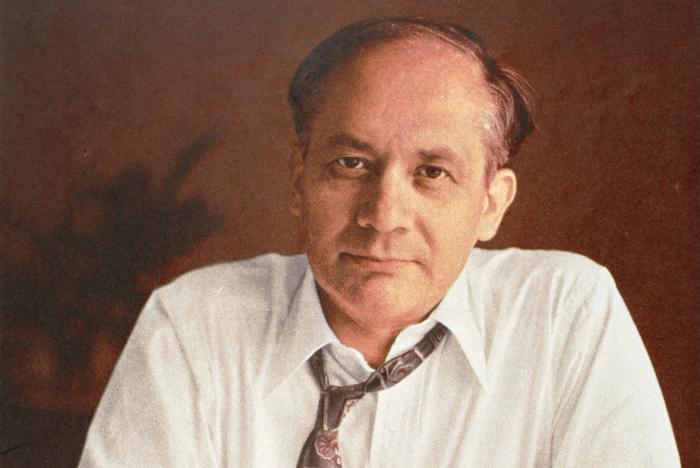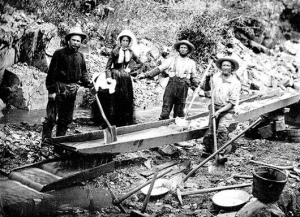
At a quiet New York cemetery in 1959, a handful of people stand around a fresh grave as a casket is lowered. Any passerby seeing the small somber ceremony might assume that the body belonged to a person of little significance. In fact, this casket carries the body of a man who is responsible for one of the largest shifts in international law in human history. Without his efforts, it is likely that the gravest crime mankind has ever committed and continues to commit would still be a crime without a name.
By the end of World War II, the Nazi regime had orchestrated the murder of over 17 million civilians in concentration camps throughout Europe. 1 Despite these egregious atrocities, no one at the time referred to the Holocaust as an act of genocide, not because it was not an appropriate descriptor, but because Raphael Lemkin had not yet coined the word and defined the crime for the world. The outcome of his personal crusade to encode ‘Genocide’ in an internationally recognized and binding Convention to which the US would sign on became his legacy (the US signed on decades after his passing).
Lemkin was born to a Polish-Jewish family in 1900 in a small village called Bezwodne in what was then The Russian Empire. Home schooled by his mother, he proved to be a brilliant scholar. By the time he received his undergraduate degree from Jan Kazimierz University he had learned over 14 languages and showed strong aptitude and interest in international law. After a career as a prosecutor in Poland, he was forced to flee to Sweden to evade capture by the Nazi forces in 1939. However 49 of his relatives were tortured and/or killed, drops in the ocean of inhumanity that was the Holocaust. 2

After fleeing the Nazi invasion, Lemkin eventually made his way to the United States. There he became a prolific professor, lecturing at the law school at Duke University in 1941 and the School of Military Government at the University of Virginia in 1942. He also served as an adviser to the United States War Department specializing in international law. 3
The world first became aware of Lemkin’s concept of genocide after the publication of what would arguably be his most important work, Axis Rule in Occupied Europe, in 1944. Primarily a legal analysis of the behavior of Nazi Germany in occupied territories during World War 2, the book also contained a full definition of the crime Lemkin dubbed “genocide.” 4 After this publication, Lemkin dedicated the rest of his life to getting the international community to acknowledge genocide as a crime under international law.
Lemkin drafted a resolution for a treaty which would officially ban genocide under international law. He then took his resolution on the road, presenting it to any nation which would hear him, hoping to garner enough support to endorse a convention on the subject. After years of lobbying the international community, The United States UN delegation agreed to present Lemkin’s resolution to the General Assembly. Dubbed “The Convention on the Prevention and Punishment of the Crime of Genocide,” the resolution was adopted on December 9th, 1948. It would be another 3 years before enough countries signed on the the convention to make it enforceable. Much to Lemkin’s dismay, The United States was not one of the first 20 signatories. 5

Lemkin dedicated the rest of his life to lobbying those nations which had not yet signed onto the convention, with the United States being his primary target. He invested every moment of his time and every cent of his modest wealth to landing that particular white whale. He eventually died of a heart attack, impoverished, unemployed, and underappreciated, in 1959. His funeral was a small affair, reportedly only attended by 7 people. 6 Yet, today, the is no Law School, no class that teaches Human Rights, nor any conversation of World War II and any of the subsequent Genocides that does not mention his name. More importantly, the Convention provided some tools to prevent or punish such cases.
The greater legacy of his life’s work would not be realized until several decades after Lemkin’s death. The United States would eventually sign the Genocide Convention, but not until 1988. The international community would eventually convict a man of the crime Lemkin coined, but not until the International Criminal Tribunal for Rwanda in 1998 which found Jean-Paul Akayesu guilty of the Rwandan genocide. Three years after that, Radislav Krstic was similarly convicted for the murder of 8,000 Bosnian Muslims in Yugoslavia. 7 Though he died nearly 40 years too early to see the fruits of his labor truly flourish, we can hope that his soul finds solace in the fact that, thanks to him, these heinous actions have a name and are viewed the world over as being among the worst crimes humanity has ever known. Eradicating the crime of genocide still eludes us but at least accountability is now more widespread around the world. 8
- Donald Niewyk and Francis R. Nicosia, The Columbia Guide to the Holocaust (New York: Columbia University, 2000), 43. ↵
- Raphael Lemkin and Donna-Lee Frieze, Totally Unofficial: The Autobiography of Raphael Lemkin (New Haven: Yale University Press, 2013). ↵
- Robert Bliwise, “The Man Who Criminalized Genocide,” Duke Magazine, November 14, 2013, http://dukemagazine.duke.edu/article/man-who-criminalized-genocide . ↵
- Rafael Lemkin, Axis Rule in Occupied Europe: Laws of Occupation, Analysis of Government, Proposals for Redress, (Washington D.C.: Carnegie Endowment for International Peace, Department of International Law, 1944) pg. 79. ↵
- Raphael Lemkin and Donna-Lee Frieze, Totally Unofficial: The Autobiography of Raphael Lemkin (New Haven: Yale University Press, 2013). ↵
- Jay Winter, “Prophet Without Honors” The Chronicle, June 3, 2013, https://www.chronicle.com/article/Raphael-Lemkin-a-Prophet/139515 . ↵
- Robert Bliwise, “The Man Who Criminalized Genocide,” Duke Magazine, November 14, 2013, http://dukemagazine.duke.edu/article/man-who-criminalized-genocide . ↵
- United Nations, “Convention on the Prevention and Punishment of the Crime of Genocide,” United Nations Treaty Collection, 78:1, 1021 (9 December 1948), New York: United Nations, 1951, 278-311. ↵



196 comments
Fernando Milian Leyva
Wyatt’s article is quite interesting in the sense that it gives the proper and deserved recognition to Raphael Lemkin for his arduous work to visualize and locate in the international scene what we know today as genocide. I have taken some classes in International Relations, and, to this day, I am not familiarized with his name. It is always good to pay a deserved tribute to that one who deserves the honor. Thanks to this honorable man, we can materialize complex concepts like the one about genocide in a unified international body of law. Also, thanks to Lemkin’s work, we can, as an international community, exchange with other nations and try to prevent issues like the mass extermination of groups. It is still a pity, however, that despite the great advances in matters of international law and despite past experiences, events like the invasion of Russia into Ukraine still take place under the somehow passive inaction of the International Community. Shouldn’t this gross invasion be considered genocide and, therefore, stopped by the pertinent authorities? After knowing Raphael Lemkin’s story, I feel that he will be nothing but aggrieved with what is occurring in Ukraine these days.
Bijou Davant
It was really interesting to read about this and how he was so closely affected by a genocide himself. Luckily, through escaping he was able to bring a lot of justice. I also really enjoy finding the origins of words and their original meanings of them. It is disappointing to see someone who changed and paved much of history, was so unappreciated, and went out so unceremoniously.
Alexis Zepeda
After reading this article, I have identified so many things that I personally appreciate. For starters, I cannot imagine what it would be like to know about the mass killings of Jewish people and other groups that are ongoing and people essentially not recognizing this horrible event for what it is. I can also appreciate the mentioning of a resolution treaty draft that Lemkin wrote to convince other countries to ban genocide. Coining the term is truly a unique responsibility to have. Lastly, I appreciate the mentioning of the Genocide Against Tutsi in Rwanda. When people think of genocide, it is so easy for people to skip over a small country such as Rwanda despite this specific genocide being fairly recent.
Mia Garza
This is a well-written and interesting article that highlights the contribution that Raphael Lemkin made to international law. Although Lemkin was not able to see his life’s work be used during his time, he is now remembered by many as the person who sought to encode ‘Genocide’ into being internationally recognized. It is important that his name continues to be mentioned for his work in coining the term for one of the most heinous crimes that can be committed.
Osondra Fournier-Colon
This article relates to Civic Engagement by Raphael Lemkin, coining the term “Genocide” concerning the atrocities he witnessed by the Nazis in World War two. He spent most of his working life to having this term become an international crime within the law. It is a shame that it is too many years after his death that the action of Genocide became genuinely recognized. This article showed Lemkin’s struggles and story during a grave time and that his mission still succeeded after his death. I would have liked a bit more background on Lemkin and the process in which Genocide was tossed around in international law.
Michaell Alonzo
I thought it was astounding that one individual was in charge of one of the biggest changes in international law in recorded history. Without his work, it’s likely that the most serious crime that people have ever committed—and still commit—would remain unnamed. The result of his personal campaign to include “Genocide” in a legally binding international convention, to which the US would adopt decades after his death. It struck me as ironic that he passed away from a heart attack in 1959 while living in poverty, being unemployed, and feeling unappreciated, but yet now there is no Law School, no Human Rights course, no discussion of World War II or any of the succeeding genocides that does not include his name. More significantly, the Convention offered some means of stopping or punishing such crimes of genocide. I had no idea that the term “genocide” was a very recent concept. Although it is regrettable that he passed away before the results of his labor could completely bear fruit, it is because of him that these horrible deeds have a name and are recognized as among the most horrific crimes humanity has ever witnessed on a global scale. Even if we haven’t completely eradicated the crime of genocide, because of Lemkin there is now more global accountability.
Amy Hotema
After reading this to myself first, I realized how powerful it was. And ran downstairs to read it out loud to my parents. We truly were amazed how long it took for the word Genocide to be taken into account for. It gave me the opportunity to really come to realize how long it took for both the United States and all other countries to see how wrong the Holocaust was. It is truly upsetting how long it took and how he was unable to see how his hard work come into realization. It is a constant battle to overcome these issues all around the world.
Maya Naik
I found it very interesting that genocide is a newer term, and that there had to put a bill in place to put an end to it. I think that article was very well written; especially the introduction. I was engaged from the get-go, and the structure of this article kept me actively engaged in dissecting these facts.
Daniela Garza Martinez
Despite the fact that I find it somewhat unfortunate that Lemkin did not live to see his work benefit the world, I found this article to be extremely interesting. First, I was unaware that the term was coined only 80 years ago. Considering the history of civilization and the amount of genocidal damage humans have inflicted on one another prior to 1944, I would have assumed the term existed much earlier. I was much less aware of the existence of Lemkin. However, I appreciate the recognition of Lemkin’s posthumous accomplishments.
Karah Renfroe
There are few words to express the importance and weight of the work of Lemkin. It was an extraordinary stride toward what legal courts/tribunals have been able to accomplish concerning atrocities such as the Rwandan genocide. Definitions and terminology are often dismissed as unimportant or minuscule, however, it has the ability to ensure fairness and justice. Lemkin demonstrates that out of pain and suffering can come immense power and strength.